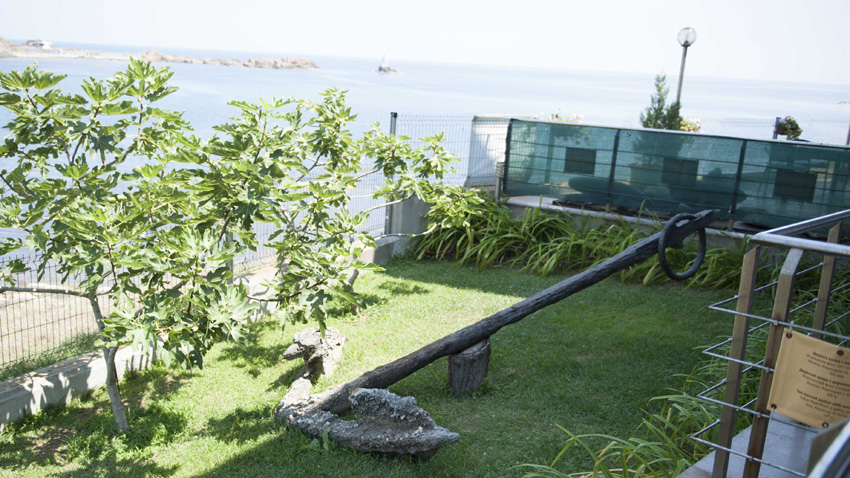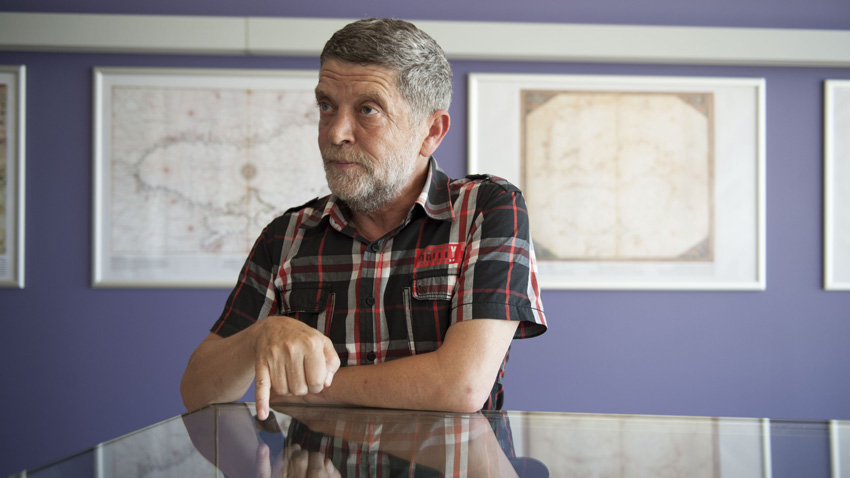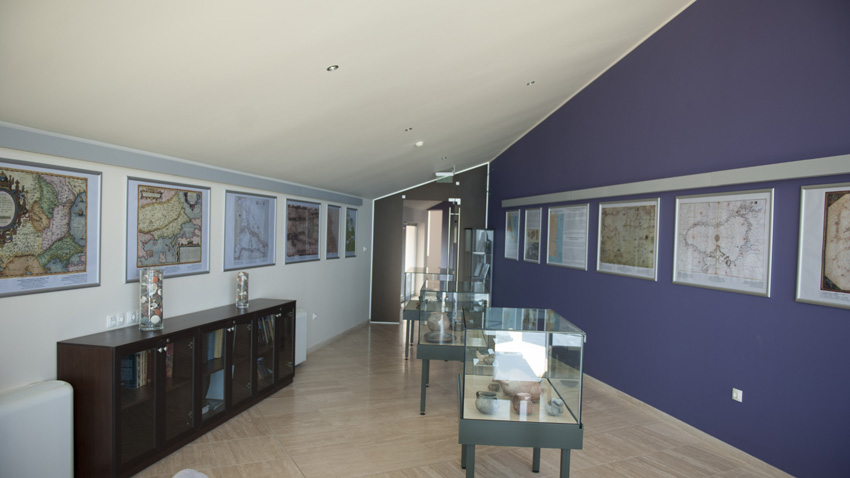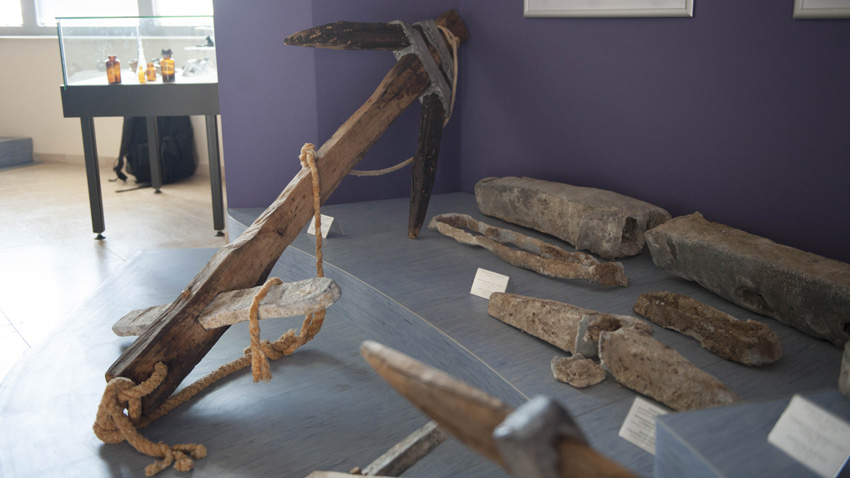 6
6
The Anchor Museum is situated in the southernmost Black Sea town of Ahtopol (Southeast Bulgaria). It is a new museum, yet rich in exponents. The museum exposition emerged as a public collection of Chernomorska Strandzha Association headed by engineer Petar Kanev. Historian Dr Atanas Orachev is in charge of the scientific management of the museum.
 “Many big anchors dating back mainly to the 19th and the 20th centuries are placed in the grass areas of the museum”, Dr Orachev pointed out. “On the other hand, the indoor exposition tells the history of the anchor itself. It consists of almost all types of anchors used in the Black Sea since the middle of the second millennium BC until the first half of the 20th century. Various fragments of sunken ships are displayed in the museum windows and on the platforms. Those finds were collected in six years. It is among the world’s biggest collection of that type. The finds are from the water section locked between Cape Maslen and Rezovo. It turned out that this part of the Black Sea coast is the most dangerous for navigation in the whole sea."
“Many big anchors dating back mainly to the 19th and the 20th centuries are placed in the grass areas of the museum”, Dr Orachev pointed out. “On the other hand, the indoor exposition tells the history of the anchor itself. It consists of almost all types of anchors used in the Black Sea since the middle of the second millennium BC until the first half of the 20th century. Various fragments of sunken ships are displayed in the museum windows and on the platforms. Those finds were collected in six years. It is among the world’s biggest collection of that type. The finds are from the water section locked between Cape Maslen and Rezovo. It turned out that this part of the Black Sea coast is the most dangerous for navigation in the whole sea."
 Why is this section the most dangerous for shipping?
Why is this section the most dangerous for shipping?
“That part of the Bulgarian Black Sea coast was formed entirely of volcanic rocks, especially the shore south to Ahtopol. The coast north to Ahtopol, near Primorsko and Kiten for instance, is formed by softer sediment rocks. That is why we can find large sand dunes there. Such beach curves can’t be seen near Ahtopol, except for the Northern Bay. One can find similar sand beaches south of Rezovo only. The shore near Ahtopol is very steep. That is why many sailing boats in the past suffered shipwreck in that region when they were hit by dangerous winds and storms.”
 That is why many finds discovered near Ahtopol are now displayed at the Anchor Museum in Ahtopol. The museum exposition also contains a representative sample of European maps which reveal the main phases of the exploration of Strandzha seacoast and the Black Sea.
That is why many finds discovered near Ahtopol are now displayed at the Anchor Museum in Ahtopol. The museum exposition also contains a representative sample of European maps which reveal the main phases of the exploration of Strandzha seacoast and the Black Sea.
Moreover, each year some of the other coastal museums display its exponents in one of the exhibition halls of the Anchor Museum in Ahtopol. This year the museum in Byala is to present its artefacts there. Those are mainly finds from the antique fortress on Saint Atanas Cape. Archeologist Associate Professor Valeri Yotov who worked at that site for nearly seven years, demonstrated how a given site can become one of the most valuable tourist attractions, Atanas Orachev pointed out.
 Along with the multiple anchors, coins and other items found in the Black Sea waters, there is a collection presenting the history of the town of Ahtopol and its population at the Anchor Museum. Visitors can receive information in three languages-Bulgarian, English and Russian.
Along with the multiple anchors, coins and other items found in the Black Sea waters, there is a collection presenting the history of the town of Ahtopol and its population at the Anchor Museum. Visitors can receive information in three languages-Bulgarian, English and Russian.
The Anchor Museum in Ahtopol is the first public collection in Bulgaria. It is financed entirely from donations and the entrance to the museum is free of charge.
English version: Kostadin Atanasov
Photos: Iliyan Ruzhin
On the eve of St Athanasius' Day, one of the churches on the outskirts of Sofia is already preparing to welcome His Holiness the Metropolitan of Sofia and Bulgarian Patriarch Daniil , who this year will celebrate the Divine Liturgy in the church in the..
Atanasovden, also known as Midwinter in our folk calendar, is a holiday on which the Orthodox Church and our folklore pay tribute to St. Athanasius the Great – Archbishop of Alexandria and a fighter against Arianism (church heresy which rejects the..
The only chapel in the country to bear the names of Saints Anthony and Atha nasius is in Sandanski, and its consecration will be performed by His Eminence Metropolitan Seraphim of Nevrokop, reports Andon Kotev - one of the initiators of the idea to..
Meatfare Sunday in 2025 will be remembered as a major celebration for the Bulgarian Orthodox Church and the entire Bulgarian community in the United..
After nearly 35 years, the Bulgarian Orthodox Church Community in London has its own church in the central part of the British capital, in close proximity..

+359 2 9336 661
